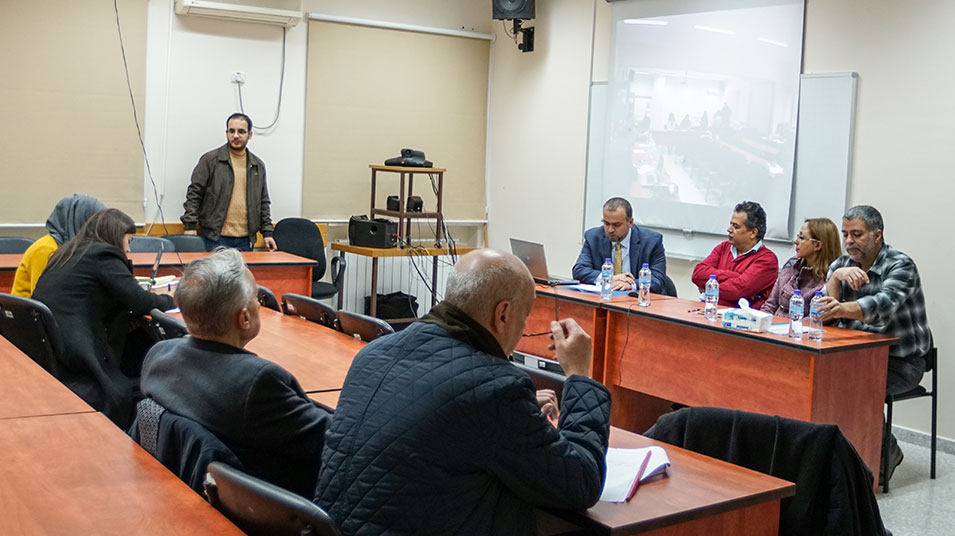Discussion tackles urban shifts in Palestine within the Colonial Context
The recent socio-urban changes in the Palestinian Occupied Territories was the center of discussion at a symposium organized by the Center of Development Studies at Birzeit University and in partnership with Rosa Luxemburg Stiftung, on November 21.
Scholars and researchers from the West Bank and Gaza gathered to produce visual and methodological documentation to understand the societal fragmentation that is taking place in urban centers, and offer an understanding to societal fragmentation and the effects of urban expansion from an political economy perspective.
The Vice President for Community Affairs, Asim Khalil, noted in his welcoming remarks that the university is keen to deepen the understanding of the Palestinian status quo that is imposed by the colonial powers, in addition to analyzing their policies. Those policies are rapidly changing the landscape of Palestinian cities and villages, which are becoming more dependent on the occupation, and economically underdeveloped.
Khalil assured symposium participants that such discussions align with the university’s mission, and contribute to the building of a solid consciousness of Palestinians’ responsibilities in combating such colonizing and neo-liberal policies.
The Acting Director of the Center of Development Studies, Lord Habash, observed that Palestine cannot achieve development while it is under occupation. “There is an urgent need to understand the rapid changes that are occurring in the landscape of Palestinian urban areas after the signing of the Oslo Accords in 1993. Understanding these changes cannot be done or solved without an analytical academic methodology.”
The Coordinator and Researcher at the Center, Ayman Rezeqallah, pointed out that the discussion aimed to present the outcomes of a number of works of research by the Center of Development Studies, which focused on the socio-urban changes in Ramallah, Birzeit, Kufr Aqab, Anata, and Gaza.
Representing Rosa Luxemburg in Palestine, the Program Manager for the association in Palestine, Issa Rabadi, expressed his pride in the partnership of the CDS at Birzeit University, highlighting the need for organizing and participating in initiatives that contribute to the presentation of progressive ideas to overcome the dominance of the neo-liberal and colonial policies that further deepen Palestinian dependence.
The symposium included three sessions. The first discussed the major changes in Gaza, tackling the effects of political fragmentation on youth and the civil society, the economic situation, and the urban and social changes in the West Bank. Political Science Professor Abdel Rahman Hajj Ibrahim moderated the session.
The second session, entitled “The Socio-Urban Changes in Ramallah and Birzeit,” discussed the landscape transitions in Ramallah and the village of Birzeit. The session was moderated by Ayman Rezeqalla.
The last session discussed the new urban transformations within the colonial context, focusing on Anata and Kufur Aqab as two case studies. The Director of the PhD program in Social Sciences, Liza Taraki, moderated the session.







